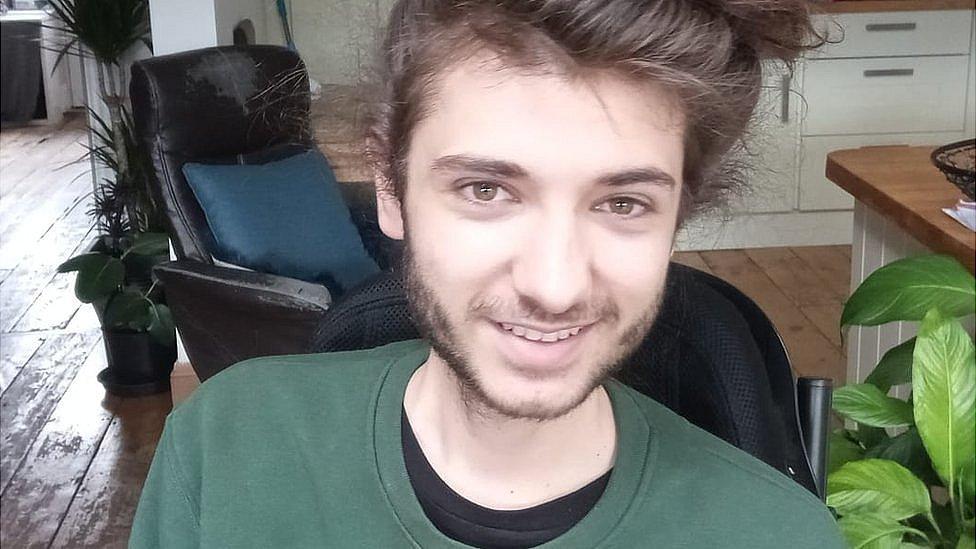Gloucester baby one of the first to get spinal gene therapy
- Published
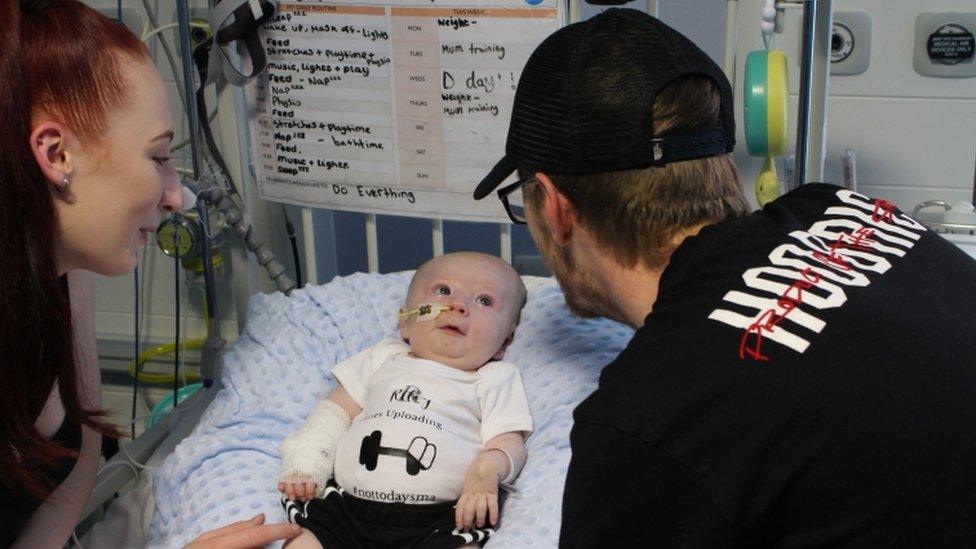
Riley Cadle-Birch was diagnosed with SMA Type 1 when he was four weeks old
A baby has become one of the first patients in England treated with a drug that can prolong the lives of children with spinal muscular atrophy (SMA).
Riley Cadle-Birch, from Gloucester, underwent the one-off gene therapy at Bristol Royal Hospital for Children.
Until two years ago there was no treatment for children.
The drug has a list price of £1.79m per dose and was made available on the NHS after a deal with the manufacturers earlier this year.
Babies born with Type 1 SMA, which is the most common form, experience progressive muscle weakness, loss of movement, difficulty breathing, and have a life expectancy of two years.
Studies found that a single treatment with Zolgensma has helped babies with SMA to sit, crawl and walk, and also prevented them from having to be put on a ventilator.
The one-hour intravenous infusion works by providing a functional copy of the gene known as SMN1, which the body needs to make a protein that is essential for the normal functioning of nerves which control muscle movements.
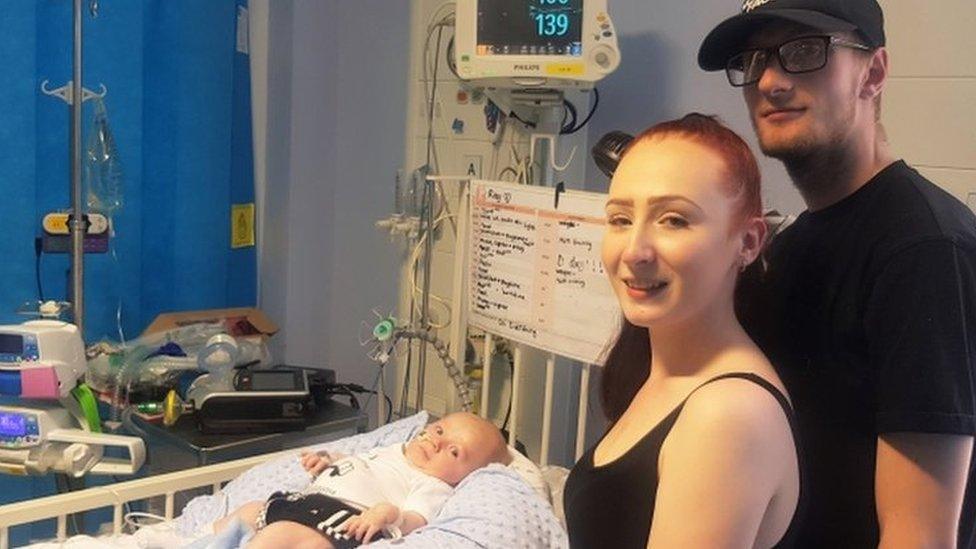
The gene therapy has helped babies to sit, crawl and walk
University Hospitals Bristol and Weston NHS Foundation Trust (UHBW), which includes Bristol Royal Hospital for Children, is one of only four centres across the country administering the gene therapy.
His mother, Jade Cadle-Billingham, first noticed something was wrong with Riley's hand and a midwife also spotted some issues with his breathing.
He was taken to hospital for a series of tests to check his reflexes and was later diagnosed with type 1 SMA.
"We've been on a really rocky road with Riley, with him being so ill at times we weren't sure if he would make it," Ms Cadle-Billingham said.
"When we started to suspect he may have SMA, I began researching the condition and came across Zolgensma, which at the time had only been announced as approved by the NHS, but we didn't yet know where it would be available or if Riley would be able to have it.
"We want to do anything we can to raise awareness of this life-changing treatment, and to give hope to other SMA families going through the same thing.
"Having this treatment is like giving him his future."
Dr Kayal Vijayakumar, consultant paediatric neurologist at Bristol Royal Hospital for Children, said: "The data from scientific studies illustrates that this treatment can significantly change the lives of those children affected by spinal muscular atrophy.
"We're incredibly excited to have been chosen as one of the four national centres in England and look forward to working closely with the other centres to ensure eligible patients are able to receive treatment regardless of where they live."

Follow BBC West on Facebook, external, Twitter, external and Instagram, external. Send your story ideas to: bristol@bbc.co.uk , external
Related topics
- Published14 March 2021
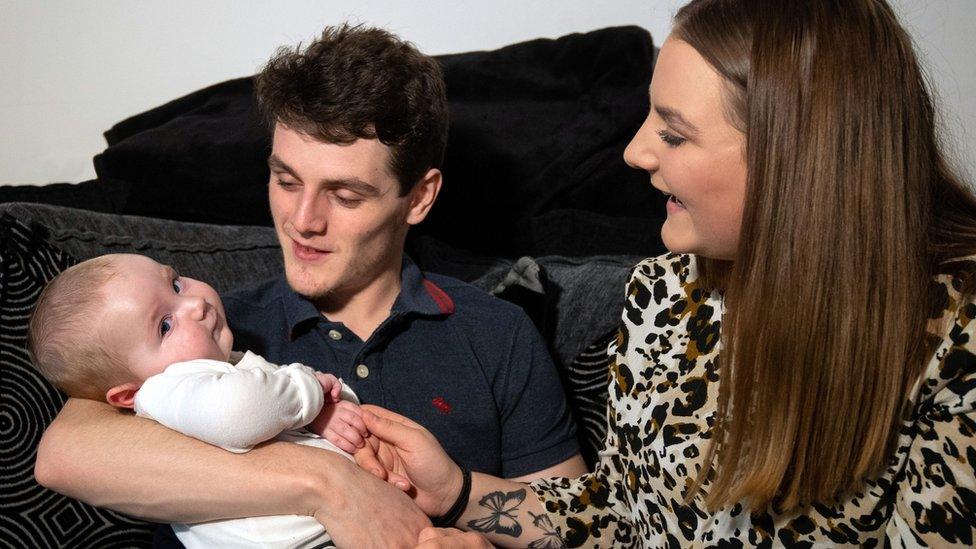
- Published8 March 2021
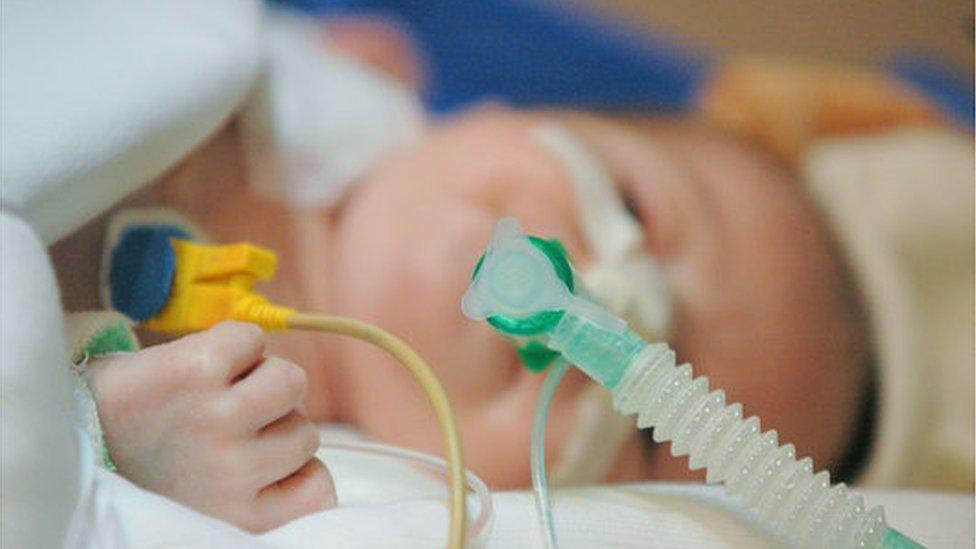
- Published5 May 2021
